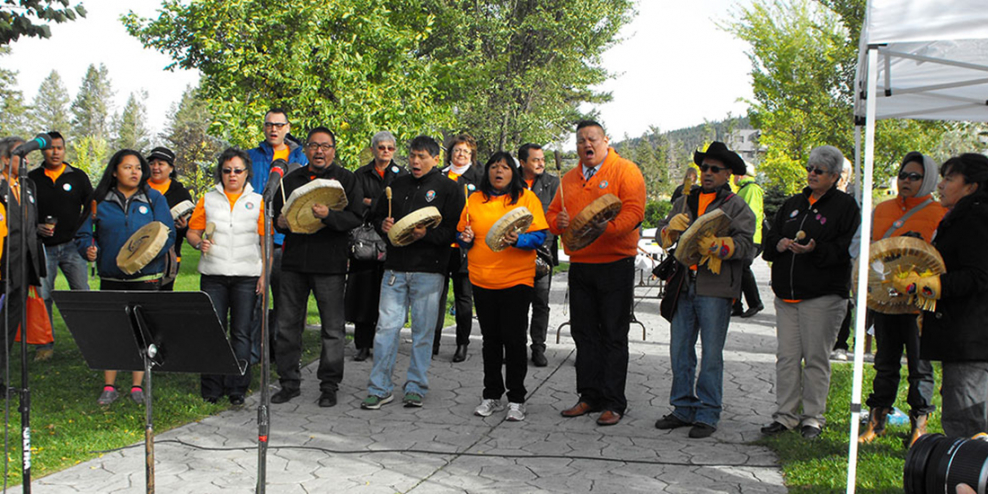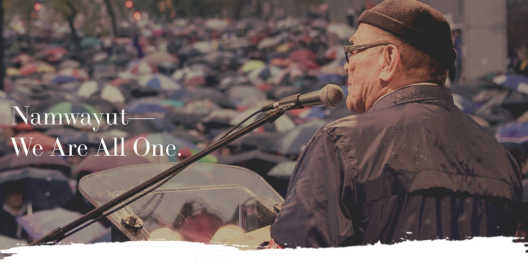Remembering is important. But joining together to support each other is even more so.
Campbell River’s Orange Shirt Day events for the National Day for Truth and Reconciliation give us the opportunity to do both.
On September 30th, folks will wear orange shirts and make a trek to honour the survivors of residential schools and the thousands more who never made it home.
Opening ceremonies start at 11:30 a.m. at Spirit Square.
At 12:00 p.m. participants will walk to the Wei Wai Kum Big House together. The walk is about embracing the spirits of the past and standing with the survivors alive today.
From there, celebrations will take place at the Big House until 2 p.m. Entry is free and all are welcome.
Elder James Kwa’hiladzi Quatell of the Wei Wai Kum First Nation says reconciliation isn’t just a word, it’s an action.
“I want people to hear the voices of those children saying ‘Help me get home. I don’t want to be lost any more; I want to go home.’ It’s people acknowledging and accepting that, yes, that really did happen,” he said.
“A new page has to be turned for all of us in order to find some kind of understanding of why that happened.”
Everyone is encouraged to wear orange to remember Indigenous children and families affected by residential schools.
Orange Shirt Day was started by Phyllis Webstad, who is Northern Secwpemc (Shuswap) from the Stswecem’c Xgat’tem First Nation.
She was just six years old in 1973 when she was brought to St. Joseph’s Mission Residential School. Her family didn’t have much money, but her grandmother managed to buy her a new outfit for school. Phyllis had picked out a shirt she felt was beautiful to wear on her first day.
“It was really exciting. I picked out an orange shirt and it was really shiny and it just sparkled,” she told Diane Amato for RBC’s People.
But the people who ran the St. Joseph’s stripped of her clothes. They took her orange shirt away, and she never saw it again. This was only the first crushing moment she would experience during her year at the school.
Since that day, to Webstad, the colour orange has symbolized being viewed as worthless. “Orange has always been to me… not mattering to anyone,” she said. “Nobody cared that we had feelings. So to me, that’s what orange meant,” she told Amato.
She didn’t wear orange again for 40 years. But in 2013, she wore an orange sweater to a press conference for the St. Joseph’s Mission Residential School Commemoration Project. She told her story publicly for the first time.
Now, wearing orange symbolizes taking back that colour for everyone who has been touched by residential schools. The gives it a new meaning of hope, strength, defiance, and unity.
Join in to help bring about a better future, where we can all walk together and orange can mean something beautiful for everyone.









